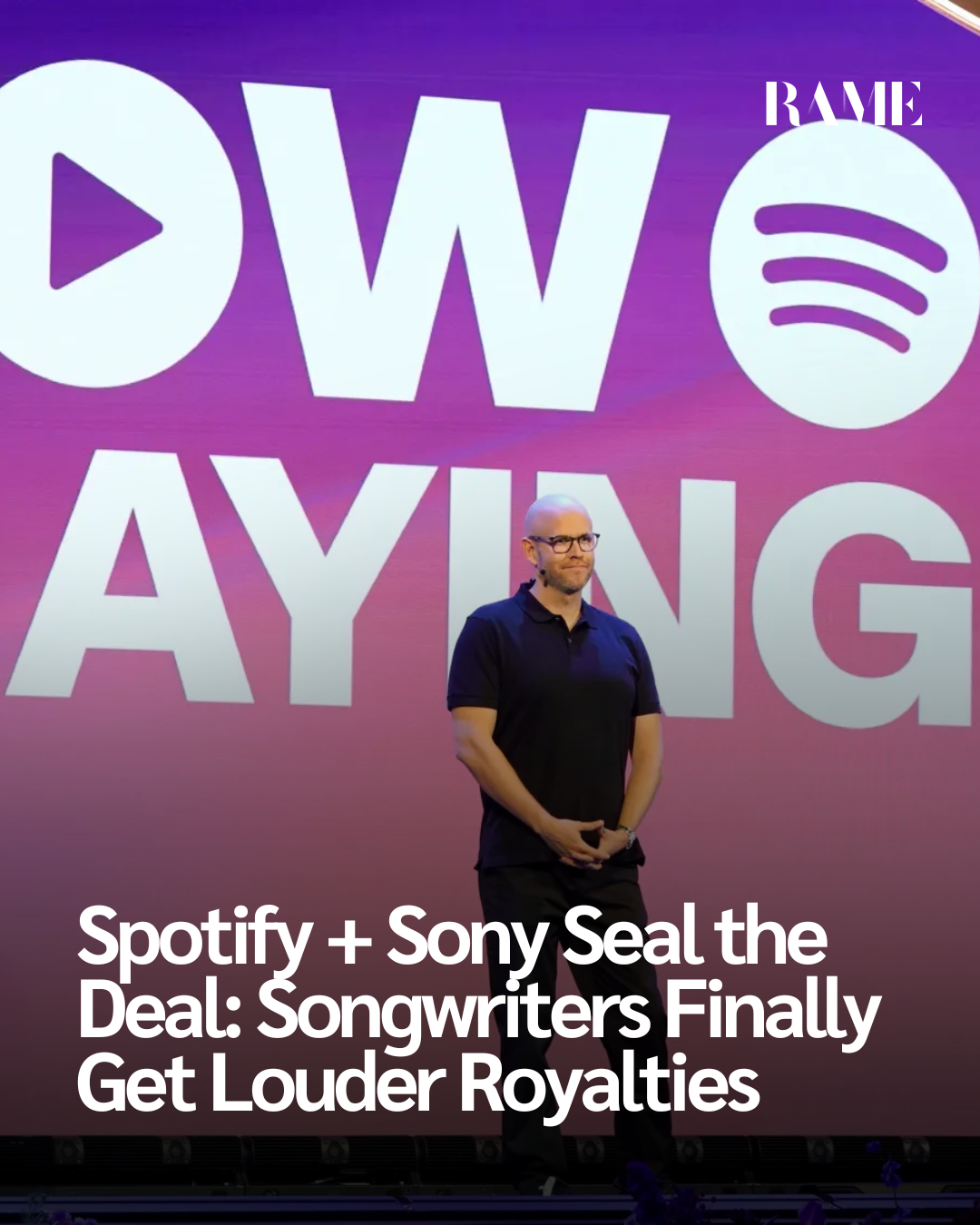Image Credit: Presley Ann/Getty Images for Spotify
A Turning Point for Spotify and Songwriters
Spotify has officially signed a new global licensing agreement with Sony Music, marking the final major label to strike a fresh deal with the streaming giant. This agreement covers both recorded music and publishing, with Spotify promising that its direct U.S. licensing arrangement will lead to higher royalties for songwriters.
The move comes after months of industry scrutiny over Spotify’s decision to classify its premium subscription as a “bundle” by including audiobooks. That technicality allowed the company to pay a reduced royalty rate in the U.S., costing music publishers and songwriters an estimated $230 million in the first year, according to the National Music Publishers’ Association (NMPA).
Industry Backlash and Bundling Controversy
Spotify’s bundling maneuver reignited old disputes between the platform and music publishers. By adding audiobooks to premium subscriptions, Spotify could legally lower its royalty obligations under the U.S. Copyright Royalty Board (CRB) framework.
The Mechanical Licensing Collective even sued over the issue, though the case was dismissed earlier this year. Still, the backlash forced Spotify to sit down with the three biggest music groups; Universal Music Group, Warner Music Group, and now Sony Music Group along with Kobalt, to negotiate direct licensing deals that sidestep the bundling loophole.
What the New Deal Means
While financial details remain under wraps, Spotify and Sony emphasized shared goals of innovation and fairer artist compensation. The agreement includes both Sony Music Entertainment and Sony Music Publishing, ensuring that songwriters “share more directly in the growth of streaming.”
Rob Stringer, chairman of Sony Music Group, said:
“Sony Music Group and Spotify have long been mutually committed to advancing music streaming and growing the marketplace for all. This is further reflected in our new agreements where we’re working to develop futuristic approaches that ensure our artists and songwriters remain appropriately compensated for their work, and audiences are getting a high-quality experience that’s ever evolving.”
Spotify CEO Daniel Ek added:
“Our partnership with Sony is built on a shared drive to shape the future of music. Together, we’re accelerating the pace of innovation to create powerful new opportunities and increasing revenue for artists and songwriters.”
Alex Norström, Spotify’s co-president and chief business officer, framed the deal as a step toward “unlocking new formats and forging deeper connections with fans.”
The Bigger Picture
Spotify has been steadily expanding its offerings beyond music launching direct messaging, a DJ feature for playlists, high-fidelity audio, and rolling out music videos in 97 countries (though not yet in the U.S. or Canada). A licensing agreement with Sony could pave the way for music videos to finally launch stateside.
The deal also signals Spotify’s strategic pivot. By securing agreements with all three majors Universal, Warner, and Sony the platform avoids further legal disputes and reputational damage while setting the stage for new product rollouts.
Why This Matters
For songwriters, the deal represents a partial correction to what many saw as an unjust system. Whether these new direct licensing agreements fully restore lost royalty rates remains unclear. Still, Spotify’s alignment with the majors suggests the industry is moving toward a more sustainable balance between innovation and fair compensation.
The real question now is whether these agreements are enough to rebuild trust between Spotify, publishers, and the songwriting community or if the next innovation from the streaming giant will once again disrupt the fragile ecosystem.


